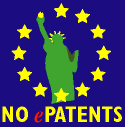Why TIM still lives
A DOS application which is still used and maintained in the year 2010?
When I tell to friends that I even live from this work, they usually look at
me in disbelief. How is this possible? Very easy: because TIM is good.
The key to success of TIM is no secret
- a reliable and extensible core system with over 15 years of experience
- co-operative collaboration between developer and end-user
- the one-man development team saves internal administration overhead
TIM fully satisfies the features required from an office managing software
- that the user gets the needed information in the right moment and without too much effort.
- that the software is stable and does not demand from users to change their habits without reason
- that the background technology of the software runs reliably
- that users can ask for individual customizations
Concerning user-friendliness TIM doesn't stand behind graphical Windows software.
- TIM cannot feature nice buttons and pictures, but this disturbs only the salesmen, not the users.
- With Windows you can make a lot of nice things, but it takes you also a lot of time to learn these possibilities, and far too many of those possibilities turn out to be only gimmicks.
- TIM is intended for people who use their computer for work.
If an employee works 6 hours per day with a software,
then it is not important whether it took
1 hour or 8 hours
before he started to love this software.
- Because there is no mouse, TIM provides a well-designed and intuitive keyboard interface. After getting used to it you work much more efficiently.
TIM doesn't ask much from your computer
- TIM is more performant than a comparable GUI application because he asks less resources from your computer.
- TIM can import data from other applications
- Other applications can easily access TIM's database because it is in simple dBase format.
- Many TIM users need a single 3,5 inch floppy disk to make a backup of their database.
- TIM does not need a Windows operating system. You can also use it for example under Linux, using FreeDos.
Copyright 2001-2010 Luc Saffre.
http://tim.saffre-rumma.net
Generated 2010-12-19 01:04:08


